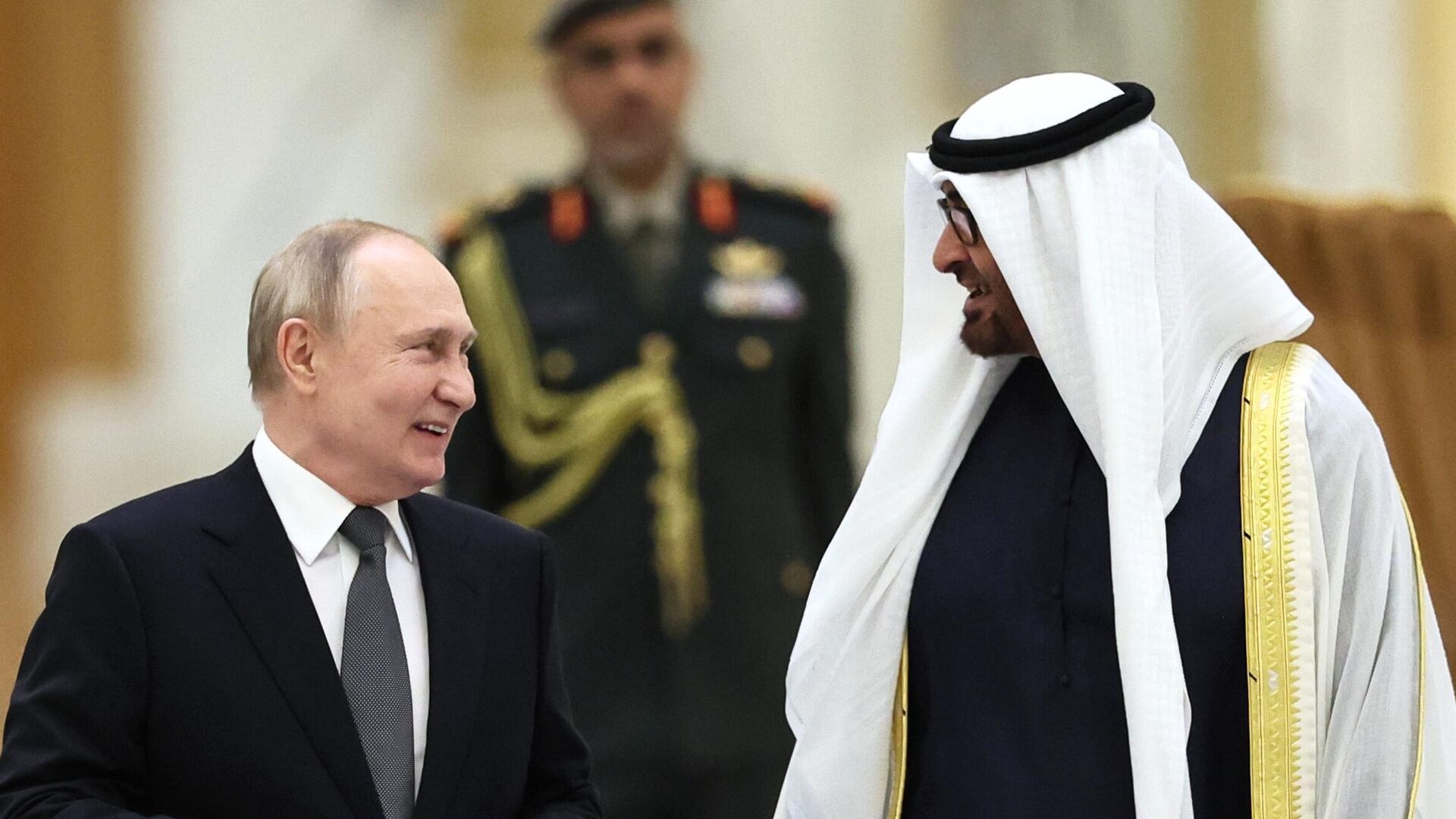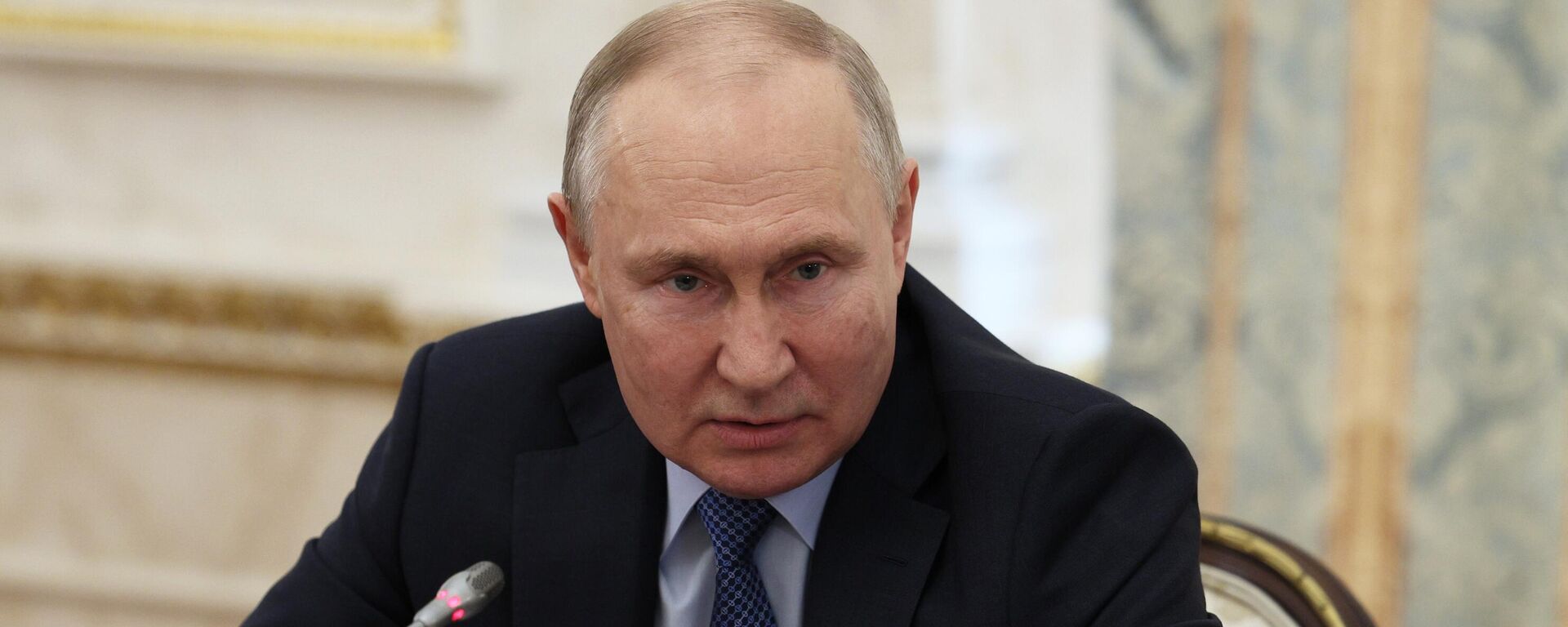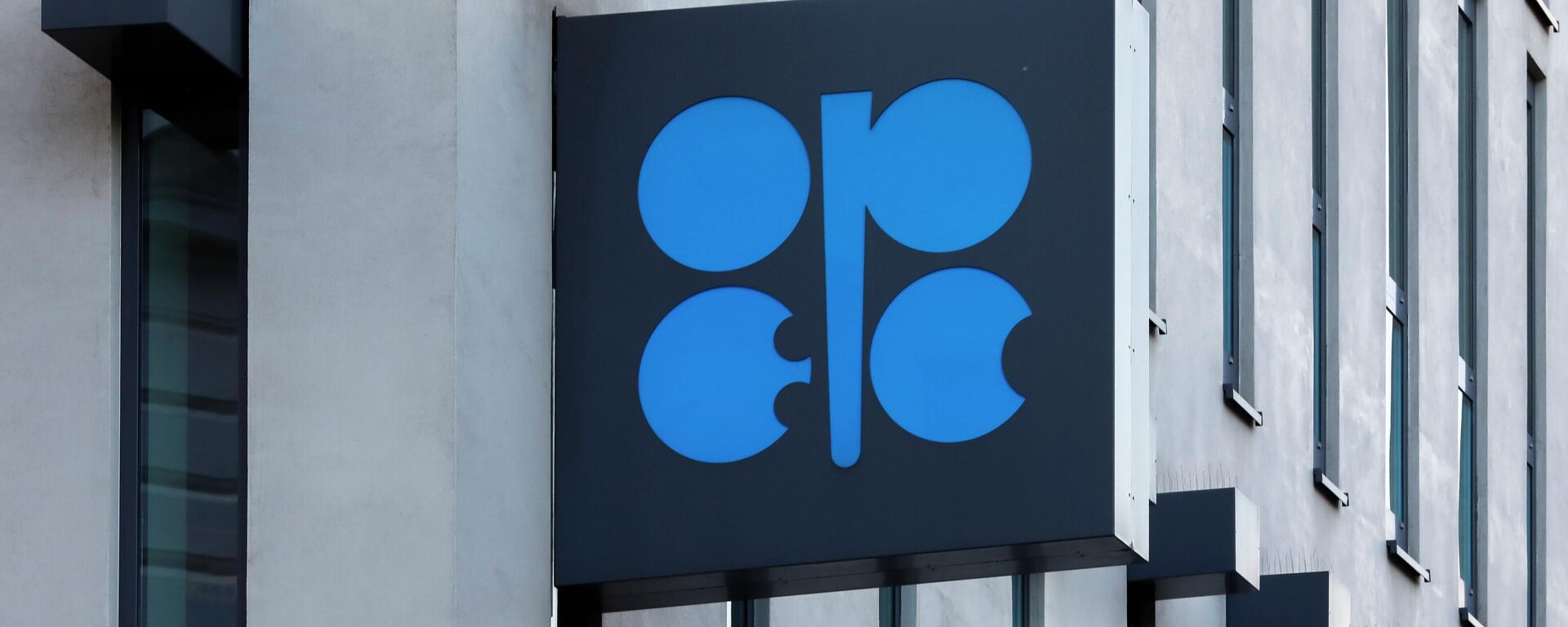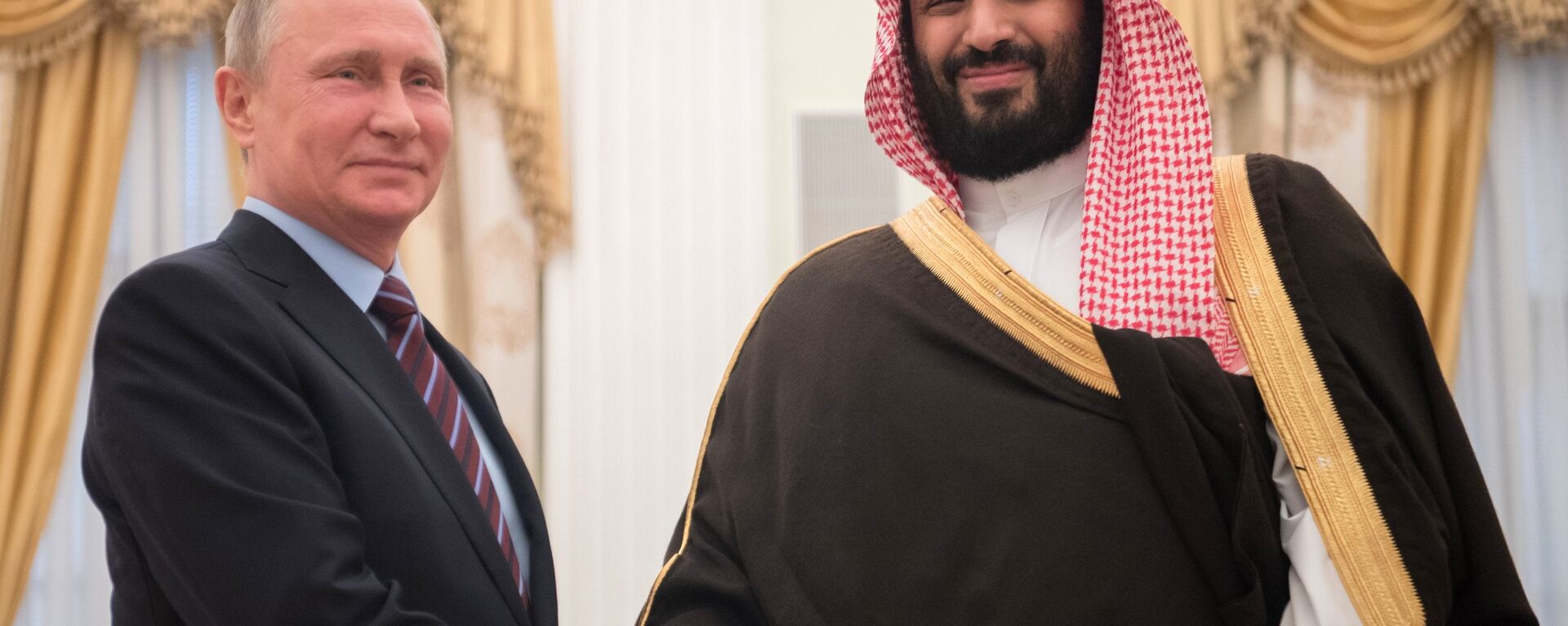Putin's Mideast Tour: Why Arab Nations Defy West to Boost Ties With Russia
17:03 GMT 06.12.2023 (Updated: 10:28 GMT 30.01.2024)

© Sputnik / Sergei Savostyanov
/ Subscribe
Russian President Vladimir Putin arrived in Saudi Arabia on December 6, having wrapped up his trip to the United Arab Emirates (UAE). What signal does Putin's Mideast tour send to the world?
President Putin embarked on a Middle Eastern tour on Wednesday to meet with Sheikh Mohamed bin Zayed Al Nahyan, the president of the UAE and ruler of Abu-Dhabi, and Saudi Crown Prince Mohammed bin Salman al Saud.
The Western press were quick to point out that the trips to Abu-Dhabi and Riyadh were Putin's first visits to the Mideast since the beginning of Russia's special military operation in Ukraine.
The tour has clearly demonstrated that the West's efforts to smear and isolate Russia failed miserably, international observers say.
"Reading the tea leaves of international politics, it is possible to say with confidence that the Western nations' attempt to isolate Russia has performed quite poorly," Dr. Marco Carnelos, former Italian diplomat and Middle East Adviser of Prime Ministers Prodi and Berlusconi, told Sputnik.
"It has been far below the initial expectations. According to some excessively optimistic Western forecasts, Russia should have been on its knees in the summer of 2022," Carnelos said. "On the contrary, more than one year later Russian gross domestic product (GDP) is growing, and Europe is experiencing poor growth, its major economy, Germany, appears on the brink of recession, and the European continent borders the risk of de-industrialization in certain specific sectors due to the high prices of energy caused by the embargo on Russian supplies of oil and gas."
Why Mideast Players Didn't Buy Into West's Ukraine Narrative
According to Carnelos, the "Global Rest" did not buy into the West's oversimplified narrative of the Russian-Ukrainian conflict — which was presented as a clash between 'an aggressor and a victim', ignoring the broader historical context of NATO's eastward expansion and Kiev's sabotage of Minsk Agreements. But at last the truth has come out, the former diplomat stressed:
"Today, thanks to some revelations of previous Western leaders, we know the value that was attributed to the so-called Minsk Agreements in certain European chancelleries. It is not surprising that this bilateral issue evolved in an open conflict. There are many responsibilities for such a war, and not all of them are in Moscow," Carnelos noted.
That is why many countries continue to maintain close ties with Russia: "To hyper-simplify the Global Rest has not followed the Global West," he noted.
Saudi Arabia and UAE: Independent Foreign Policy
Saudi Arabia and the UAE have tried to construct a more autonomous foreign policy over the past few years, the expert continued. Both countries have sought to diversify political and economic ties and embrace multipolarity instead of outdated bloc thinking, according to Carnelos.
"World politics is slowly turning more multipolar, and such a context provides better and wider opportunities, especially from an economic point of view. Asia is rising, and the 21st century might be the consecration of such an impressive rise. Both Saudi Arabia and UAE do not want to miss such a unique train," he stressed.
Flourishing Trade and OPEC+ Successes
Russia has deepened ties with the Middle Eastern players over the past several years, with the result that the UAE has become "Russia's main trading partner in the Arab world," as Putin remarked during the meeting in Abu Dhabi.
Moscow's relations with Saudi Arabia allowed the two to stabilize global oil prices within the framework of OPEC+, the association of the major crude producers. "OPEC-plus has become the real referee of global energy policy regardless of US pressure on Middle Easterner major energy producers," Carnelos said.
"Cooperation between Russia, the UAE, and Saudi Arabia is deepening," Mehmet Rakipoglu, a researcher on international affairs at Dimensions for Strategic Studies, a think tank based in the UK, London, told Sputnik. "Russia and US allies in the Middle East do not fully accept the dictates the United States is trying to impose on regional actors. This is so we can talk about a multi-dimensional relationship network."
"At the same time, Russian activity in the region, especially economically, is critical. As a matter of fact, Russia is one of the most significant oil-producing countries in the world," Rakipoglu continued. "There is potential for boosting economic relations between Russia and the Gulf Cooperation Council members."
Russia: Effective and Capable Player
Russia has also demonstrated that it is a strong player capable of protecting its own interests and shielding its allies. Moscow's decision to provide military assistance to Syria in response to the official request from Damascus demonstrated to regional countries that Russia's Middle Eastern strategy is comprehensive and balanced.
"Russia policy in the Middle East has been quite effective in the last years in safeguarding its own interests, both in Syria and in shaping an energy policy functional to Russian revenues from the oil and gas sector," said Carnelos. "In such a way, President Putin has shown to be a clever poker player. Russia has never had as good cards as the US has had in the last decades, but it has definitely played them far better than Washington."
BRICS Expansion Opens New Horizons for Middle East
In addition, BRICS (Brazil, Russia, India, China and South Africa), a club of major developing economies, has opened its doors to Middle Eastern nation — offering them new lucrative opportunities for wider markets, investments, and technological exchange. The group granted membership to Argentina, Egypt, Ethiopia, Iran, and Saudi Arabia earlier this year.
"The new BRICS format, BRICS 11, has been a blow for US policy in the region," Carnelos said. "In such a context Russia and China played a quite complex game and, so far, prevailed. Having Saudi Arabia, UAE, and Iran joining the BRICS might really change the economic dynamics in the Middle East. If it is true what Bill Clinton used to say, i.e., 'It’s the economy stupid' we are going to watch a tectonic shift in the Middle East also from the political viewpoint.
Palestine-Israel Conflict
Russia has expressed its concerns over civilian deaths amid Israel's war in Gaza and lent vocal support to the two-state solution, calling for global recognition of a Palestine state in peaceful co-existence with Israel. Rakipoglu noted that Moscow's firm stance on the Palestinian issue has resonated with many Arab and Muslim nations across the world.
"In Arab countries, Russia has a great deal of influence as well because of its support for Palestine," Rakipoglu said. "Despite the fact that Israel has committed genocide in the Gaza, America's continued unwavering support for Israel increases Americans' discomfort in countries such as Saudi Arabia and the United Arab Emirates due to its unconditional support for Israel. In contrast, Russian support of Moscow's support for Palestine also enhances Arab-Russian relationships."





